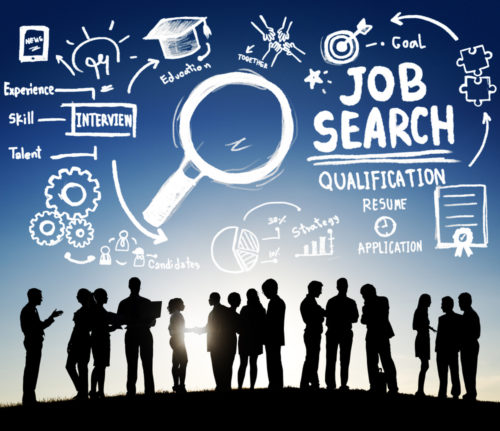Have you ever been called a “Type A” person, but not known quite what it meant? What about the other types? Is being called a “Type A” an insult or a compliment? And where did all these “types” come from?
For being such a common moniker, the origin of “Type A” is quite random compared to other personality theories. Type A and Type B Personality theory started in the 1950s as a potential risk factor for coronary heart disease. Created by two cardiologists, Meyer Friedman and Ray Rosenman, the study lasted about eight years, and the two estimated that having a Type A personality doubled your risk of contracting coronary disease in otherwise healthy individuals. Of course, this study was speedily debunked by psychologists and doctors, and it is no longer believed to be the case that Type A or Type B personalities have any connection to heart health.
However, despite the outdated concept around these personalities, the term “Type A” and associated personality profile still remains to this day. Although not fully endorsed by psychologists, this personality type can still serve as a useful way to think about personality.
Let’s look at what Type A personality means, how it can affect your career, and how you can leverage it to your advantage.
Table of Contents
What is a Type A Personality?
Although the origin of the Type A and Type B Personality theory might not be based in scientific truth, there are still some accuracies in classifying someone as a Type A personality.
The theory created by Friedman and Rosenman state that Type A people are outgoing, ambitious, and oftentimes anxious individuals. You may appear as a natural-born leader, and may be highly invested in achieving a recognized and highly-regarded status (whether in a business or just in life). You aren’t the sort of person that settles for less or are very easy to compromise with — you might even say “my way or the highway.” Of course, this isn’t always a bad thing, and many Type A personalities are actually quite successful and talented, and your rigid and domineering nature gets you far in life.
Much of your personality is based on your upbringing and worldview, and for Type A people it could be a variety of factors that led to your personality forming in this manner. It could be that you were raised with very strict parents that set high standards and discipline you for falling short. Or it could be that the modern office — which often places a lot of emphasis on efficiency and productivity, with unrealistic expectations on time — has made you into someone that has no patience and functions constantly with a high stress threshold.
This tendency toward stress, overwork, and general intensity is part of the reason Type A personalities were originally associated with coronary disease. The researchers were interested in whether temperament and behavioral tendencies were responsible for problems like high blood pressure where a more clinical cause was not apparent. Of course, we know today that too much stress can indeed be unhealthy, but being driven and assertive doesn’t automatically put you at risk for heart disease.
Some may refer to Type A people as “The Leader,” but it’s important to remember that type theories come with their own valid criticisms. Even with more popular tests — such as the Myers-Briggs Type Indicator — the results are not definite, and many people can change their personality traits over time. Even as a Type A person, you have the ability to change and work on improving your strengths and weaknesses.
Type A Personality Traits
If you’ve been referred to as a Type A person, it could be that you exhibit some of these personality traits:
- Ambitious and efficient
- Anxious and sensitive to criticisms or rebuttal
- Competitive drive
- Concerned with time management
- Decisive and direct
- Deadline and goal driven
- Easily stressed
- Feel ignored if not recognized for achievements
- Focused and not afraid to take risks
- High-achieving
- Highly independent
- Impatient and hate delays or ambivalence
- Motivated and persistent
- Multitasker
- Natural leader
- Organized
- Oriented on practical solutions and change
- Status-conscious
- “Workaholic”
- You dislike routine and you’re “no-nonsense”
- You often take charge of situations that seem in need of order (in your eyes)
Type A Strengths and Weaknesses
Just as with any other personality type, being a Type A person comes with its own set of pros and cons. However, don’t be discouraged by your personality traits: knowing your weaknesses can be in itself a strength. Self-awareness is the first step to improving your skills, and is also an extremely valuable soft-skill to have in life.
Some of the most recognized Type A strengths include:
- Detail, goal, and task-oriented: Once you’re given an assignment to do — as long as it’s not mundane or boring — you’re able to concentrate and finish that task in record time, without compromising the quality of your work.
- Highly independent: You don’t need supervision to be able to complete projects, and you function well by yourself. Additionally, you can be a very successful leader or small business owner, since the only person you need to hold yourself accountable is yourself.
- Motivated and persistent: Whether you’re eager to finish a project or win a negotiation, you’re able to stick with it until you can get the end result that you want.
- Oriented on practical solutions and change: When you notice a problem, you’re not afraid to bring it to light and find a solution. In fact, you embrace challenges that you can find a solution for, and you will work tirelessly to find a practical solution. You may even be the go-to person for solving problems at your business.
- You’re all business: Although you may occasionally show your humorous side, you’re more concerned about being strictly business while at work. This can have it’s advantages, although it can also be straining on you personally: your work-life balance might need some adjusting. But at the same time, you understand the importance of professionalism, and are more than capable of drawing a line between work-appropriate and inappropriate.
Some of the most recognized Type A weaknesses include:
- Anxious and sensitive to rebuttal or criticism: Unfortunately it can be hard for you to take criticism — even when it’s positive or warranted. You may get easily defensive, or shrug off critiques if they don’t match with how you picture yourself. This is certainly not an ideal way to take criticism, as you’ll be less likely to intake suggestions and put them into practice. Instead, try to listen to critiques with an open mind, reflect on your decisions and approach, and try to make positive changes that allow you to grow and improve with practice.
- Competitive to a fault: Unlike other types that might not be eager to be the best, but just to do their best — you are competitive to a fault. You don’t just want to prove yourself to yourself; you want to prove yourself to the whole world. This can mean you might not be afraid to be aggressive and sacrifice friends or relationships to get ahead, which can be extremely detrimental. If you find yourself getting overly competitive, or too interested in achieving a higher status, remind yourself to take a moment to slow down and get some perspective: would winning really be the best option, or would it only make you feel good for the moment and possibly hurt others in the process?
- Impatient and hates delays or ambivalence: Many Type A people are highly-driven, but as a result you have no patience for other people who might still need time to decide. However, not everyone is functioning at the same level as you, and you could end up hurting yourself or others if you force people to function at the same pace as you. Instead, be kind and courteous of people that have a different mode of thinking or acting, and remind yourself to take a breath or work on something else when you feel impatient.
- Low Emotional Intelligence: Because you’re sensitive to criticism and impatient with others, you can sometimes come off as very insensitive. It could be that your emotional side is not your strong suite, as you often give more weight to logic and reason. However, it’s helpful to work on improving your emotional intelligence: not just for your own sake, but to become a better leader or friend to others.
- “Workaholic”: Although working and achieving goals provides you with a certain level of fulfillment, there’s more to life outside of work. Instead of allowing yourself to be consumed by the nine-to-five schedule, do your best to take breaks, vacations, or even weekends away from work and the computer. This is why achieving a healthy work-life-balance is so important. The more you can unplug, the less stressed you’ll be.
- You often take charge: It might be nice to be the go-to person when things go awry, but it’s important to not overstep. Make sure you’re not jumping on projects without the full consent of those already working on it, and try to avoid stepping on toes. Even if something seems completely out of order, that doesn’t mean you have the right to take over that project without first consulting the people in charge.
Best Careers and Jobs for Type A Personalities
Since many Type A people are referred to as “Leaders,” it may be obvious that you can excel in business, management, and leadership. In many ways, these may be some of the highest paying jobs that you can achieve as well, but there are plenty of other jobs out there in the world for you to pursue.
Some of the best careers and jobs for Type A people include:
- Business or Small Business Owner and Management: You are professional, detail and goal-oriented, independent, and motivated. All of these qualities are highly regarded in the business world, and you can easily fit into almost any business leadership position: from a group leadership positions, to management and the C-Suite. Plus, if you find yourself able to start a small business, you can easily pursue your dreams, meet your goals, and become a successful business owner — as long as you plan properly.
- Advertising or Marketing Manager
- C-Suite Executive (CEO, COO, etc)
- Financial Manager
- Operations Manager
- Supervisor, Manager, or Team Leader (General)
- Data Entry and Analyst: Because your mind is very logically driven, you can excel in data entry and analyst jobs. You’ll easily be able to notice mistakes and report or fix them. You’ll also be able to work independently in many of these positions, and might even be able to implement organizational changes that improve your processes and the business as a whole.
- Computer Analyst
- Data Entry Clerk
- Financial Analyst
- Inventory Manager or Analyst
- Logistician
- Market Research Analyst
- Website Researcher and Analyst
- Marketing and Event Coordinating: You are a planner, and when you have an idea of what you want out of a project, you see to it that your project is perfect. You are also eager to outdo expectations, rely on data, and improve your practice until it is picture perfect. Because of all these traits, you would excel in marketing or event coordinating. Events, especially, are high-stress and require an eye for detail, both of which you’re more than capable of achieving.
- Advertising Manager
- Communications Manager
- Convention Manager or Coordinator
- Event Planner or Coordinator
- Market Researcher
- Search Engine Optimization (SEO) Specialist
- Social Media Manager
- Liberal Arts and Social Sciences: Although many of the strengths inherent in Type A people relate well with data and hard statistics, you can also apply your motivation and drive to pursuing a liberal arts or social sciences career path. You can be independent, stay focused on tasks with hard deadlines, can notice small mistakes and fix them, and can persist until the project is completed.
- Captioner or Transcriptionist
- Editor or Proofreader
- Economist
- Film Editor
- Historian
- News Reporter
- Producer or Director of Film
- Political Scientist
- Statistician
- Writer (Online Blogger, Novelist, Journalist, etc)
Type B and Other Personality Types
The Type A moniker is certainly the most commonly heard or well known personality “type.” However, there are other personalities that were originally defined by Friedman and Rosenman, and later expanded upon by other psychologists. Keep in mind, the definition of these other types can often vary depending on the context or even change over time:
- Type B “the Socializer”: Type B was the second personality type that Friedman and Rosenman named, and the intention was to define it as the opposite of a Type A. However, although the two types share very little in common, their definition has changed over time. Type B people are relaxed and easygoing, often not stressed by the world around them, but not as driven to finish projects or achieve goals. They’re charismatic and oftentimes extroverted, with a good sense of humor and a mind on their community. Like Type A people, they can be sensitive to criticism or when they feel ignored, although they’re less driven to be recognized when completing hard tasks or assignments. They oftentimes enjoy being the center of attention and love to socialize.
- Type C “the Detailer”: Type C people are much more introverted than A or B. They’re reserved and calculated, follow rules and enjoy or are comfortable with predictability. They don’t like to push the mold, but instead want to fit inside it. They are risk averse, thoughtful, sensitive, patient, and loyal. They often suffer from perfectionism and are detail oriented like Type A people, but Type C people are more likely to not assert themselves when they need to and are emotionally limited.
- Type D “the Distressed”: Type D people appreciate structure and order. They are dependable, punctual, consistent, and are motivated by security. They work well with a set of guidelines or directions, and are very change averse. Oftentimes they find it difficult to express emotions and might suffer from low self-esteem. They can also suffer from anxiety, anger, depression, and tension due to their constant high-alert status. Like Type A people, they can have a low emotional intelligence, but that doesn’t mean they’re incapable of understanding or expressing their emotions in a productive way.
No matter what your personality is, it’s important to remember that these “types” are only a rough categorization of human characteristics and behavior. No personality test or moniker is going to be entirely accurate, but it can always help to better understand how your strengths and weaknesses could be used to your advantage in your career. Whether you’re a Type A or a Type D, there is a job out there that is perfect for you. You just have to find it!
Image Source: https://depositphotos.com/





